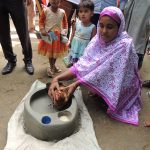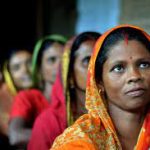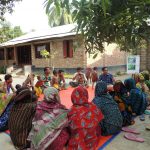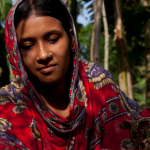On March 29, 2023, USAID Agrilinks, Feed the Future, and IFPRI jointly organized the webinar, "Into, Through and Beyond USAID Programs: Lessons from the Women's Empowerment in Agriculture Index." During this webinar, IFPRI presented how empowerment insights have been leveraged to shape and inform gender-sensitive policies and programs in Bangladesh. The presentation was based on […]
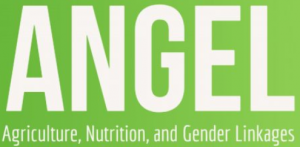
The ANGeL pilot project (2015–18) aims to identify actions and investments in agriculture that will help to improve nutrition and empower women. The PRSSP designed this project, which the Bangladesh Ministry of Agriculture and other partners are implementing, which will evaluate the impact of 3 types of interventions for promoting nutrition and gender-sensitive agriculture:
- Agriculture Production—Facilitating the production of the high-value food commodities rich in essential nutrients through the diversification of crops, livestock, and the like.
- Nutrition Knowledge—Conducting high-quality training in behavior-change communication to improve people’s knowledge of nutrition.
- Gender Sensitization—Undertaking activities to empower women and raise their status while encouraging gender parity.
The Ministry of Agriculture will use ANGeL data to (1) identify which interventions most effectively increase agricultural diversity, improve nutrition, and promote women’s empowerment; and (2) scale up the most effective interventions all over Bangladesh. ANGeL is the first ministry-led initiative in Bangladesh to use evidence from a randomized controlled trial to design a national program.
ANGeL is jointly funded by USAID and the Bangladesh Government, implemented by the Department of Agricultural Extension, coordinated by the Agricultural Policy Support Unit (APSU), and evaluated by IFPRI-PRSSP.
For more information on ANGeL, please contact IFPRI Country Representative and ANGeL Project Lead Akhter Ahmed.
Can diverse farming systems enhance nutrition-sensitive agriculture?: Food and Agriculture Research Discussion Forum
Background On April 1, 2023, the Food and Agriculture Research Discussion Forum (FARDF) convened a meeting to discuss Jaya Jumrani's research, “Agricultural Production Diversity and Women's Nutrition: Evidence from Rural Bangladesh,” which analyzed data from IFPRI's Bangladesh Integrated Household Survey (BIHS). Among other points, this research concluded that, while poverty reduction and rice production have improved, […]
Into, Through and Beyond USAID Programs: Lessons from the Women’s Empowerment in Agriculture Index
Background The Women’s Empowerment in Agriculture Index (WEAI) is the first-ever direct measure of women’s empowerment and inclusion in the agriculture sector. Since its launch in 2012, WEAI has grown into a suite of quantitative and qualitative research tools and has been used by over 246 organizations across 58 countries worldwide to track progress toward […]
New Publication: Comparing Delivery Channels to Promote Nutrition-Sensitive Agriculture
New Publication In December 2022, IFPRI published the discussion paper, "Comparing delivery channels to promote nutrition-sensitive agriculture: A cluster-randomized controlled trial in Bangladesh," which is based on research from the IFPRI-designed Agriculture, Nutrition, and Gender Linkages (ANGeL) project, implemented by the Bangladesh Ministry of Agriculture. Abstract We use a randomized controlled trial in rural Bangladesh […]
Podcast: Scaling Up Nutrition for the Poor in Bangladesh
IFPRI's podcast Research Talks! has released a new episode, which features an interview with IFPRI’s Senior Research Fellow & Bangladesh Country Representative, Akhter Ahmed. Dr. Ahmed takes listeners behind-the-scenes of how research findings were translated into a national program targeting agriculture, nutrition and gender via the ANGel project in Bangladesh. Listen to this riveting episode […]

